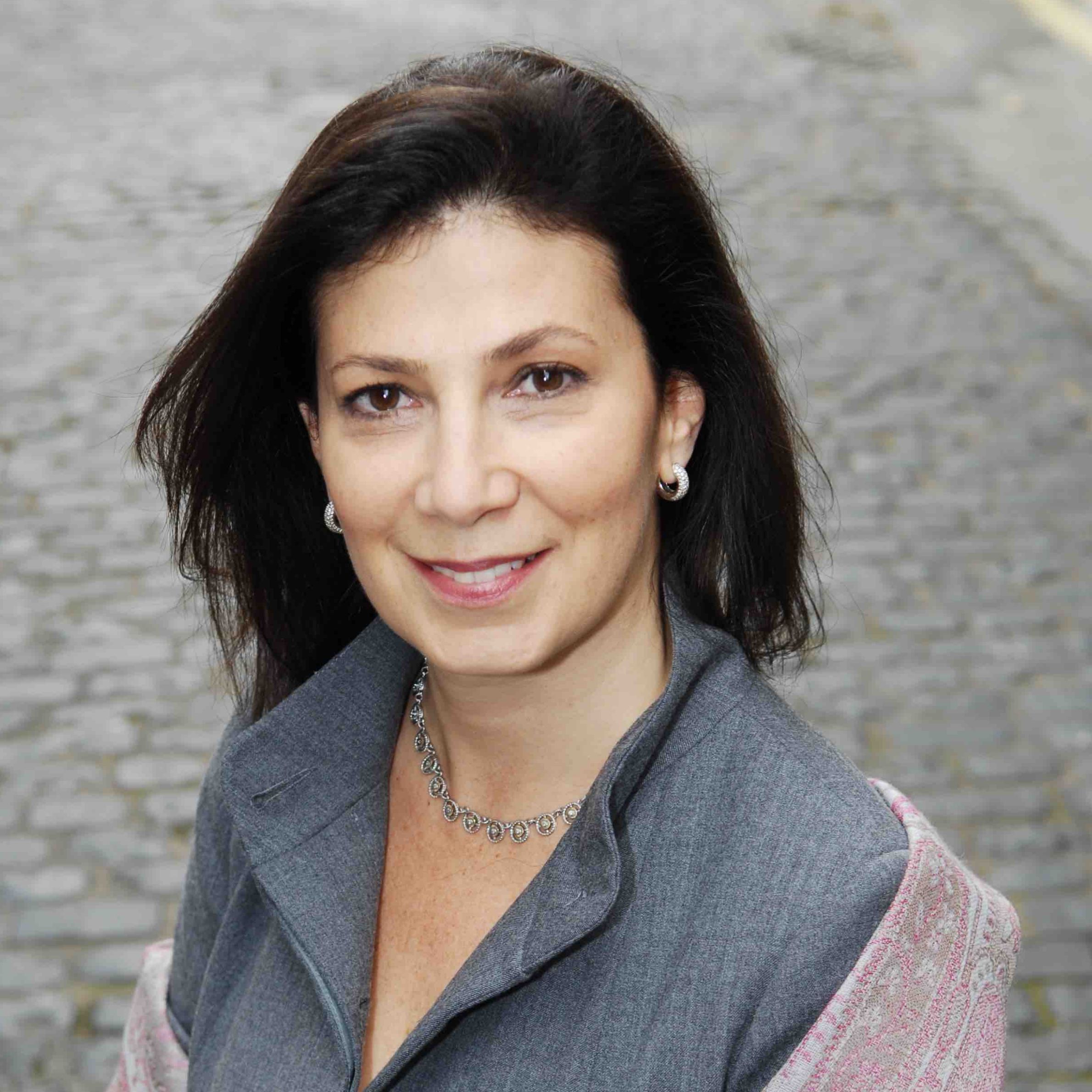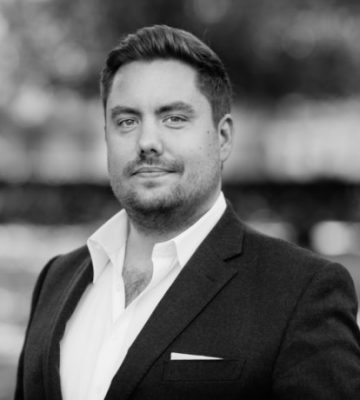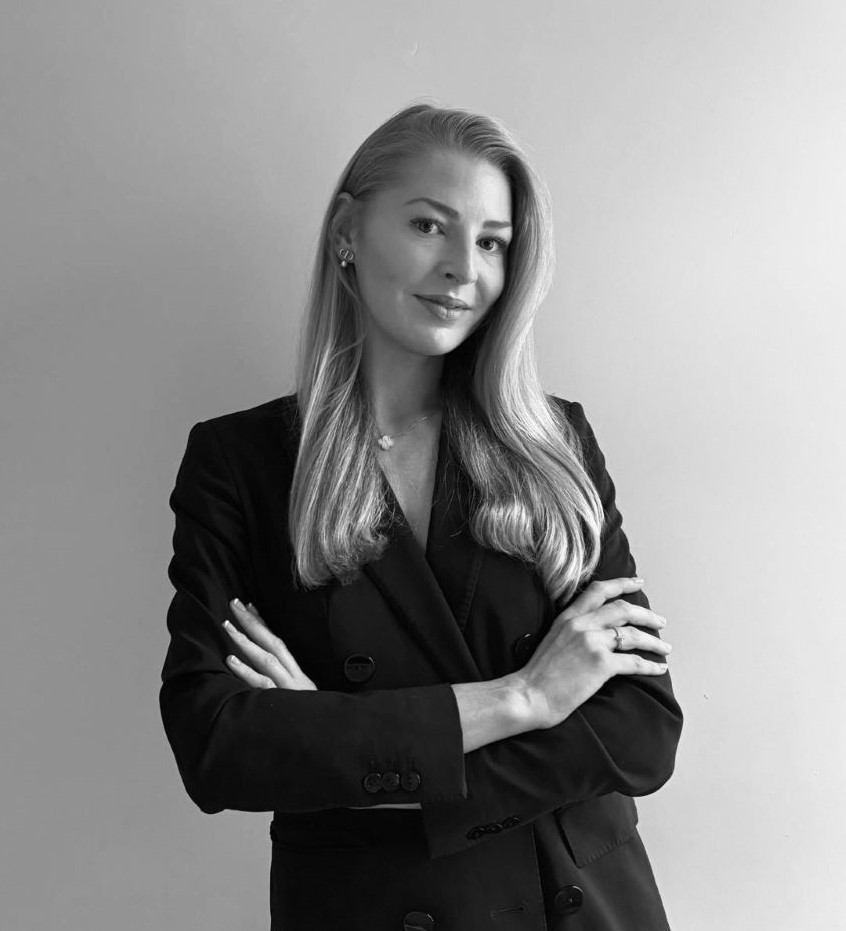Tina Vadaneaux is the Founder and CEO of Continuo Foundation, a charity supporting baroque musicians and helping to bring the joy of live chamber music to people across the UK. Tina began her professional career in Corporate Finance on Wall Street, having also been educated in the US. Following a move to London in 1992, she had a fifteen-year career in international project finance advisory at various leading City firms. Subsequently, she completed post-graduate studies in English and Art History at Kings College London and then worked as a mediator for financial disputes. Following her interest in classical music, Tina worked pro bono with the European Union Youth Orchestra and spent four years (until the closure of music venues in March 2020) engaging new audiences for The Mozartists, a period-instrument orchestra and opera company.
1. Can you share the story of what inspired you to found the Continuo Foundation?
As a music and opera lover, I have always been a frequent concertgoer. When the first lockdown happened in summer 2020, all concerts were cancelled. Experiencing life without live music for a few months and imagining the impact on the musicians who have spent years training only to see their entire career evaporate overnight, I was moved to act, to try to do something that would give musicians hope for the future.
Many people don't realise that virtually all musicians in the UK are freelancers; if they don't perform, they don't earn. It's a precarious existence in the best of times, so the pandemic was truly devastating - financially, creatively, and emotionally. I saw a real risk of losing an enormous pool of talent in a sector which had taken sixty years to develop.
The UK has a world-leading baroque music and opera scene, something The Economist referred to as "one of the glories of all British music." There seemed to be so much potential for helping these artists weather the storm, rebuild their careers, and emerge more resilient.
At the same time, I realised that while those in London, Oxford or Cambridge have their pick of excellent concerts every day, people in other parts of the country may not have even one concert per year. There was an obvious win-win here waiting to be seized.
2. What's been the most significant moment or milestone in your career that led to its foundation?
I had never started a company or a charity before. Still, I've realised over the past three years that everything I've done in my career and personal life has made me well-suited to create Continuo Foundation. Working as an advisor to major corporations, raising hundreds of millions of pounds to build new infrastructure projects, studying art history and poetry, working as a mediator, working with The Mozartists to find ways to engage new audiences, and even growing up as the eldest of six children – all of these experiences came together to spark that light-bulb moment when the idea of trying to raise money to offer project grants to period-instrument ensembles came to me.
3. You've held a fantastic array of roles and positions throughout your career; how do you stay adaptable and open to change?
The various roles and activities I've pursued throughout my career have been both intentional and accidental, but the one constant has been an interest in people.
Leaving university and working on Wall Street seemed like an exciting choice, as did moving to London to work in The City. Advising international clients on projects in what was then called 'emerging markets' allowed me to understand different cultures and ways of working. It was essential to adapt to local customs and communicate in ways which were effective for the particular audience.
Whatever I do, I try to learn something new, and as long as I'm learning, I feel that my time is well spent.
That's one of the aspects of baroque concerts which I most appreciate – the musicians are incredibly knowledgeable and love to share this by speaking directly to the audience. Not only is this engaging, but I leave every concert knowing more and understanding more deeply than when I arrived.
4 Leadership often involves taking risks. What role do you believe risk-taking plays in achieving success, especially in a charitable setting?
I'm naturally quite risk averse, and sometimes think that if it were not for the extreme circumstances brought about by the pandemic and the urgent need I sought to address, Continuo Foundation might not exist. There were certainly moments of thinking, 'I must be mad trying to do this!'
We have now become so integral to the baroque music ecosystem that it's hard to imagine, but when I first started, people told me my idea would never work. I knew I might try and fail, so taking the risk and aiming high was vital to our success. I think it's the same in a charitable or a business setting.
5. What is your leadership philosophy, and how do you use this to inspire and motivate those around you?
For me, leadership is about helping the people around you to succeed and inspiring them with the vision of what can be achieved by working together.
I've always loved helping people to fulfil their potential – that applies to the musicians who benefit from our support and those working within Continuo Foundation. There is also an element of leadership that fosters a sense of inclusiveness and a spirit of collaboration, the idea that we are stronger together.
The UK's early music world is hugely varied, with 150 groups of different sizes, instruments, repertoires, and resources. One of the things I feel most proud of is the way I believe Continuo Foundation has helped to create a sense of this being a community to which everyone belongs.
6. Overcoming challenge and displaying resilience is increasingly important. Can you share any setbacks you've encountered and how you used that experience to learn and grow?
In the early days of the pandemic, I felt very strongly that I wanted to return to full-time work. My children were older, and I thought I would like to work within the arts, ideally in the philanthropy sector.
A job came up for a Grants Manager role at a major arts funder, and though I hadn't applied for a job in twenty years, I decided to apply. When I didn't receive a response, I felt devastated. I decided to speak with a career coach who had been recommended to me, Rory Laughton-Scott. During our initial chat, he asked, "If you were twice as bold, what would you do?" Surprising even myself, I replied, "I would create a foundation to support period-instrument ensembles." He asked what was stopping me and the rest, you know.
7. Working for a charitable organisation can be tremendously rewarding, but how do you continue to foster a culture of creativity from those around you?
I am incredibly fortunate to be surrounded by creativity on all sides!
We conduct two grant rounds each year, and the creativity being unleashed by this process is astounding. In each round, we receive about 60 applications for high-quality, imaginative projects bringing music to every region of the country – and they keep getting better and better, which makes it very hard to choose.
Our Patrons are internationally renowned artists, and our Advisory Panel is made up of three talented musicians, an experienced baroque festival director and a Handel scholar. The team members working on our not-for-profit digital initiative, Continuo Connect, are also bursting with creative ideas for bringing visibility to the musicians we support and growing audiences for the future.
8. Leaders often face challenges in balancing work and personal life. How do you manage this balance, and what strategies do you use to prevent burnout?
There aren't many jobs which involve attending two or three, sometimes four, outstanding concerts or operas each week! There is nothing I find more uplifting than live music – it feeds the soul and is the perfect antidote to burnout!
However, to be candid, work/non-work balance is something I have yet to achieve. I love working with people, and I would rather have too much to do than too little, but the time commitment needed to establish Continuo Foundation, to manage our growing operations and to raise the funds to keep it all going is enormous. Having said that, seeing the impact on the community is incredibly rewarding. I can also see how much potential there is to do more - and this gives me the energy to continue.
9. What advice do you have for individuals aspiring to work or volunteer in the charitable sector? Are there key principles or lessons you feel others could learn from?
I am not an expert, being relatively new to this world and learning as I go, but my advice would be to find something about which you are passionate, something which moves you.
No one achieves great things on their own, so surrounding yourself with people who are positive, supportive, and encouraging is also essential. I am very fortunate to have the wonderful team of Continuo Foundation Patrons, Advisors and Trustees, all giving their time pro bono. I am also very grateful for the generosity of our donors, which has made our impact possible. It has been a joy to share this journey with them - and I am told they have also found it rewarding!
If you can find a mentor, that will make an enormous difference. I have had a wonderful mentor, Rob Mather, from whom I have learned what it is to create and run a charity with absolute integrity and the highest standards of efficiency and effectiveness. Involving friends and family in your charitable mission also helps connect your life and work positively. It would be difficult to dedicate myself full-time (on a pro bono basis) to Continuo Foundation without the support of my husband Victor.
10. Finally, huge congratulations to the Continuo Foundation for reaching its 3rd anniversary. What's been your proudest moment of the first three years, and what do you hope for the years ahead?
Thank you. It's hard to believe that three years have passed, and even harder to choose one moment, as there have been so many. Of course, I am thrilled that we have been able to raise £750,000 to support almost 1,000 musicians who have shared music in 150 different communities across the country, and that the projects we support have earned a reputation for quality and imagination. Beyond this, If I had to choose one moment, it would be when Ensemble Augelletti - one of the emerging groups to whom we had awarded a grant to make their debut CD in 2021 - was selected as the BBC New Generation Baroque Ensemble for 2023-2025, a great achievement.
For the years ahead, we hope to continue with our grant-making, helping baroque music flourish in every corner of the UK. We also plan to allocate more grants to emerging ensembles who face greater challenges in accessing funding and getting projects off the ground than larger, more established organisations. However, where we see the most exciting potential for growth and for supporting the sector at scale is with our Continuo Connect digital hub. This website brings together everyone in the sector and is designed to enable the UK's world-class baroque music scene to gain visibility and to connect with and build larger, more diverse audiences.
It's still early days, but Continuo Connect has already become home to 150 ensembles who use the site to list their concerts and share their work with a wider audience. Continuo Connect is also making it easy for audiences to find concerts and festivals near them and is increasing ticket sales. By helping musicians earn more income through greater activity and more effective marketing, we see the potential to improve musicians' long-term financial sustainability, touch the lives of more people in more places, and bring these communities together through music.





